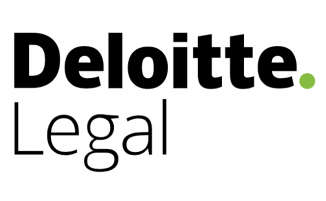Mental health in Singapore’s workplace is a growing concern, with a Straits Times article reporting that nearly seven in ten Singapore residents found 2021 to be the most stressful year at work, and more than half struggled more with their mental health at work in 2021 than 2020.1 This article sets out the existing legal regime regarding mental health concerns at the workplace, and subsequently provides recommendations for employers to consider adopting, particularly if termination is being contemplated.
A. Existing legal regime
Workplace Safety and Health Act 2006 (WSH Act)
Under the WSH Act, employers have a duty to take, so far as is reasonably practicable, measures that are necessary to ensure the safety and health of the employees at work,2 with ‘health’ encompassing both physical and mental well-being.3 Officers of the company are also responsible for ensuring their employees’ safety and health, and would have to show that they had exercised due diligence to prevent workplace incidents.4
Pursuant to the WSH Act, the Workplace Safety and Health Council has approved Codes of Practice (COPs)5 including:
- the ‘Code of Practice on WSH Risk Management’ which was expanded in 2021 to explicitly cover mental well-being and includes examples on how employers can identify, evaluate and manage risks related to mental health at the workplace; and
- the ‘Code of Practice on Chief Executives’ and Board of Directors’ Workplace Safety and Health Duties’, which was launched in 2022 and refers to company directors allocating sufficient resources to promoting workplace mental well-being.
Tripartite advisory on mental well-being at workplaces (Advisory)
The Advisory, which was issued in 2020, recommends that employers provide support for their employees’ mental well-being on three levels:
- Individual: to raise employees’ awareness on mental well-being, provide access to third-party counselling services, and for companies with flexible employee benefits to expand the scope of coverage to include mental well-being programmes, consultations and treatments.
- Team/department: to train supervisors to spot signs of mental distress, foster a psychologically safe and trusting work environment, and strengthen the workplace social support system.
- Organisation: to review the state of employees’ mental well-being regularly as part of the risk assessment for workplace health, review human resources polices, implement and encourage flexible work arrangements and establish work-life harmony and return-to-work policies.6
Upcoming workplace fairness legislation
More recently, on 4 August 2023, the Singapore Government has accepted the final set of recommendations by the Tripartite Committee on Workplace Fairness for the Workplace Fairness Legislation (WFL), which is expected to be passed in 2024. The WFL will inter alia prohibit workplace discrimination in respect of protected characteristics, including mental health conditions which is presently not a protected characteristic under the Tripartite Guidelines on Fair Employment Practices and Wrongful Dismissal.
The definition of ‘mental health conditions’ was recommended to cover more serious forms of diagnosed mental disorders usually associated with distress or impairment in important areas of functioning.7 Details are expected to be made available when the WFL is introduced.
B. Recommendations to address mental health concerns at the workplace
Where there are mental health concerns arising in the workplace, employers should consider inter alia the existing COPs and Advisory, as well as guidance published by the Tripartite Alliance for Fair and Progressive Employment Practices (TAFEP) on supporting employees’ mental well-being at work.
Briefly, TAFEP’s recommendations are that an employer should respond to an employee’s mental health condition by:
- acknowledging the effort and courage taken by the employee to share their mental health condition and to reassure them that their health information will be kept confidential and only disclosed if necessary, and if so, with their consent;
- listening to the employee and exploring accommodations including allowing flexible hours, time off for medical appointments, and having quiet rooms to provide a ‘safe space’ during breaks; and
- organising regular sessions to check in on the employees and direct them to available support services.
If the termination of the employee is being considered, in the case of poor performance, it would be prudent to ensure that there is documented proof recording any performance improvement plan and any reasonable accommodations that had been extended to the employee to accommodate any mental health issues.
In the case of misconduct, extra care must be taken during the inquiry process. Whilst there are no local authorities on the impact of an employee’s mental health issues on an employer’s inquiry into misconduct, there have been foreign authorities, specifically in the UK and Australia, where the following principles may be gleaned:
- insofar as the mental health issue has no relation to the misconduct, there would be no discrimination;
- where the mental health issue may be or is linked with the misconduct, the employer should investigate the employee’s condition and consider alternative measures such as demotion or suspension; and
- summary termination may be justified if the mental health issues do not outweigh the egregious misconduct. The context in which the conduct occurred must be considered, including whether such conduct was one-off.
Notwithstanding that unlike in Singapore, there is legislative protection in UK and Australia for those with mental health conditions which qualify as a disability,8 authorities from these jurisdictions may still provide guidance for a prudent and cautious approach to be adopted by employers in Singapore.
To conclude, mental health issues are difficult and sensitive to address in the workplace context, particularly in the case of dismissals. Employers would benefit from implementing measures to create the right type of support structure in the workplace to manage mental health. Added benefits include reduced absenteeism and attrition and increased productivity, as it has been reported that employees with mental health conditions missed 17.7 days of work per year and were 40% less productive while at work, which equates to S$28,720 in economic losses annually per person.9


















